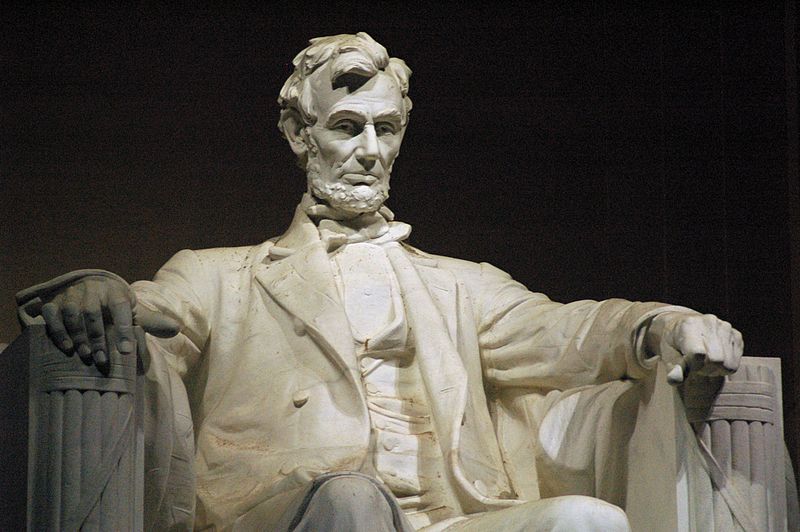There you go again, Mr. President: invoking Abraham Lincoln as the father of big government.
“[A]s Abraham Lincoln understood, there are also some things we do better together,” President Obama said last night, attempting to justify his expansion of the federal government. “So, in the middle of the Civil War, Abraham Lincoln said, let’s help to finance the Transcontinental Railroad, let’s start the National Academy of Sciences, let’s start land grant colleges.”
But in a Heritage Foundation Special Report, Allen C. Guelzo refutes the canard that Lincoln spawned the modern bureaucratic Leviathan. Guelzo also reveals how the early Progressives distorted Lincoln’s legacy to justify their program of expansive government.
For starters, Guelzo finds that Lincoln’s administration produced no dramatic increase in executive agencies. Between the 1850s and the end of the Civil War, the federal government added seven new agencies for a total of 22 (a far cry from the 513 agencies under Obama in 2010 alone).
Obama points to the transcontinental railroad and the land grant colleges as an example of Lincoln’s affinity for big government. But upon Guelzo’s examination, it’s clear that they were no Trojan horse to grow government.
First, unlike the transportation “investment” Obama calls for, the Transcontinental Railroad was not funded by tax revenues: “The funding that supported the building of a transcontinental railroad by the Union Pacific and Central Pacific railroads came in the form of bonds backed by federally owned public lands that came into the possession of the federal government from the Louisiana Purchase and the Mexican War,” Guelzo writes.
Under the terms of the Pacific Railroad Act, the federal government provided the bonds (loan guarantees) but no operating funding, no management oversight, and no ongoing regulatory bureaucracy.
Meanwhile, the “land-grant” college legislation—the Morrill Act of 1862—functioned similarly. This initiative came from the states and granted 30,000 acres of federally owned land to each of the loyal states “for each Senator and Representative in Congress to which the States are respectively entitled by the apportionment under the census of 1860” for the establishment of colleges dedicated to “such branches of learning as are related to agriculture and the mechanic arts, in such manner as the legislatures of the States may respectively prescribe.”
Strictly speaking, the Morrill Act actually devolved power from the federal government to the states. “It grant(ed) states the ability to create ‘land-grant’ colleges and to administer them as the state legislatures saw fit without any subsequent federal involvement,” Guelzo explains.
Lincoln was deeply committed to the framework of limited government set forth in the Declaration of Independence and the Constitution. He stated he “never had a feeling politically that did not spring from the sentiments embodied in the Declaration of Independence.” His true legacy is not enlarging government but preserving the Constitution and the Union.
The wartime emergency of 1861–1865 increased the size and scope of the federal government for a time. This increase was the creature of an emergency and was never seen by Lincoln as anything but that. His unwavering commitment to natural rights and the Constitution’s framework of limited government dispels any notions that he set the stage for the ongoing expansion of government in our own time.




























